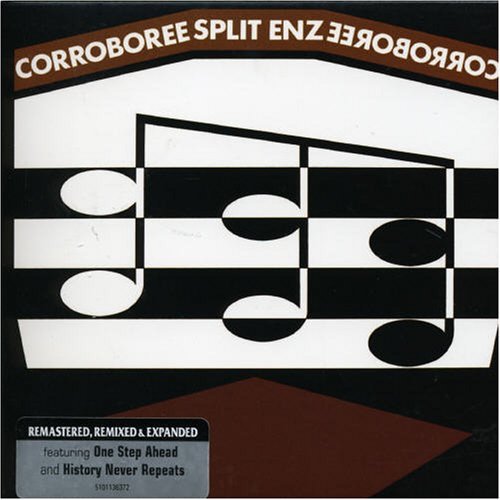- Waiata
:"Waiata is the
Māori word for song. See alsoMāori music ."Infobox Album | Name = Waiata (Corroboree)
Type =Album
Artist =Split Enz

Recorded = AAV Studios, Melbourne, 1980
Released = April 1981
Genre = New Wave
Length = 37:20
Label =Mushroom Records
Producer =David Tickle
Reviews =
*Allmusic Rating|3.5|5 [http://www.allmusic.com/cg/amg.dll?p=amg&sql=10:cln8b5p4tsqs link]
Last album = "True Colours"
(1980)
This album = "Waiata (Corroboree)"
(1981)
Next album = "Time and Tide"
(1982)"Waiata" is a 1981 album by
New Zealand New Wave bandSplit Enz . ItsAustralia n release was titled "Corroboree". "Waiata" is theMāori term for song and singing, while "corroboree " is the Aboriginal term. According toNoel Crombie the intention was to name the album using a word from the natives of every country it was released in. This did not go ahead and the only country to adopt this change was Australia. The rest of the world kept the New Zealand title "Waiata".Although the album hit #1 on the Australian charts and was successful elsewhere, it could not match the huge sales of band's previous release, "True Colours". A lot of this was due to internal conflicts between the band and their producer/engineer
David Tickle , whom they chose not to use again after the album was complete.Drummer
Malcolm Green , in spite of his strong performances, was fired before the album's release due to musical differences between himself andTim Finn . While the split was not amicable at the time, Malcolm rejoined the group for their2006 reunion."Ships" was originally titled "Up to the Nines"; "Clumsy" started life as "Cheated".
Noel Crombie was annoyed about the album cover change for the American market, as they had an aversion to the colour brown.Track listings
All songs written by
Tim Finn , except where noted.Original 1981 release
# "Hard Act to Follow"
# "One Step Ahead " (Neil Finn )
# "I Don't Wanna Dance"
# "Iris" (N. Finn)
# "Wail" (Eddie Rayner )
# "Clumsy"
# "History Never Repeats " (N. Finn)
# "Walking Through the Ruins"
# "Ships" (N. Finn)
# "Ghost Girl"
# "Albert of India" (Rayner)2006 re-release
# "Hard Act to Follow" - 3:21
# "History Never Repeats " (N. Finn) - 3:00
# "I Don't Wanna Dance" - 3:35
# "One Step Ahead " (N. Finn) - 2:51
# "Walking Through the Ruins" - 4:08
# "Wail" (Rayner) - 3:10
# "Iris" (N. Finn) - 2:51
# "Clumsy" - 3:33
# "Ghost Girl" - 4:39
# "Ships" (N. Finn) - 3:04
# "Albert of India" (Rayner) - 4:24
# "In the Wars" - 3:33ingles
*"One Step Ahead" (Reached top 10 in Australia and New Zealand)
*"History Never Repeats" (Reached top 10 in Australia and New Zealand)
*"I Don't Wanna Dance" (Failed to chart)Chart positions
Personnel
plit Enz
*
Tim Finn - vocals
*Neil Finn - vocals,guitar
*Noel Crombie - percussion
*Malcolm Green - drums
*Nigel Griggs - bass
* Edward Rayner - vocals, keyboardsTechnical
* Produced and engineered by David Tickle.
* Assistant Engineer Scott (Blackhand) Hemming.
* Recorded at AAV Studios, Melbourne
* Mixed at AAV Australia and Farmyard Studios, UKsuccession box
before = "Swingshift " byCold Chisel
title = Australian Kent Music Report number-one album
years =April 27 -May 17 1981
after = "The Beatles' Ballads " byThe Beatles
Wikimedia Foundation. 2010.
